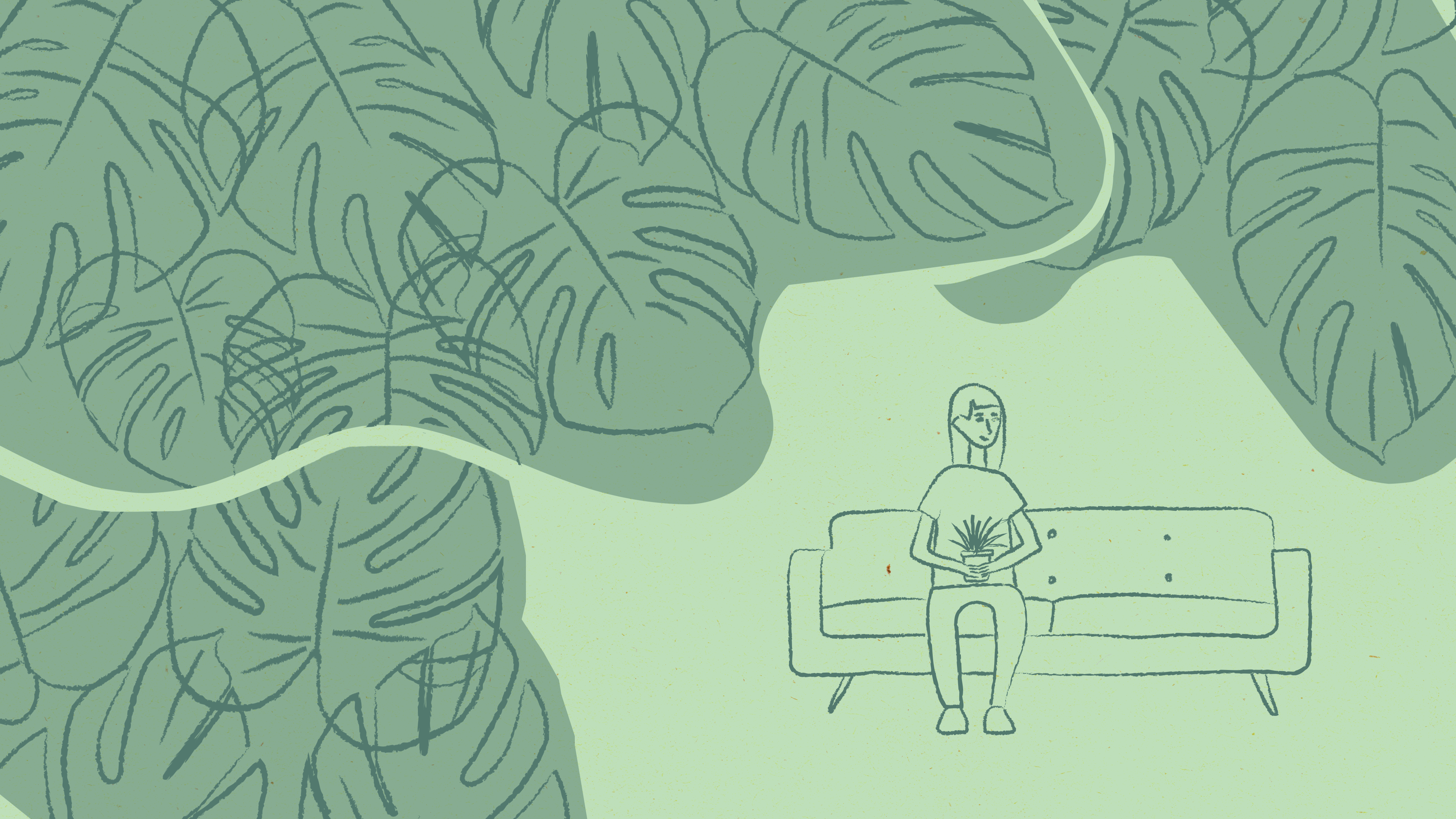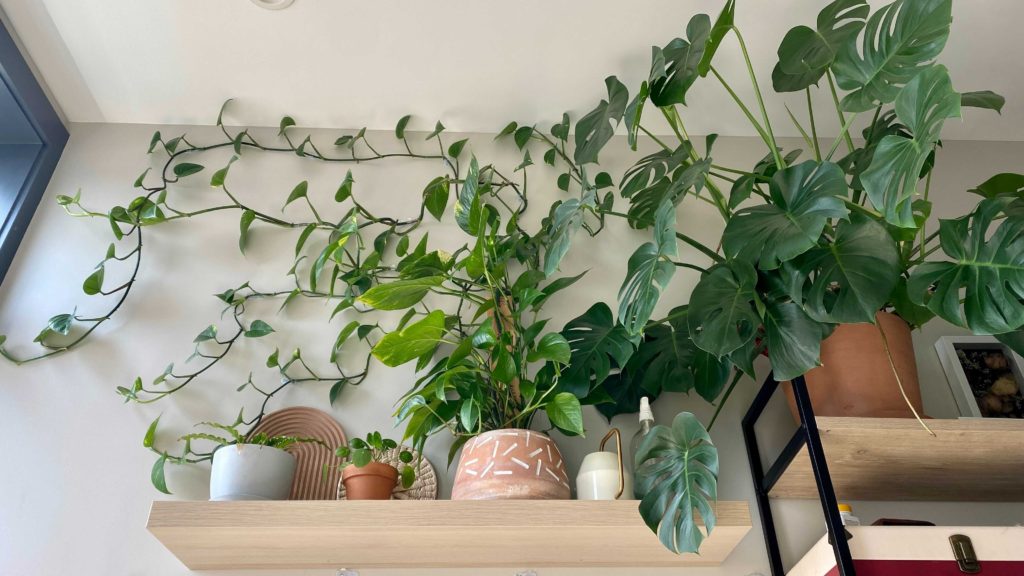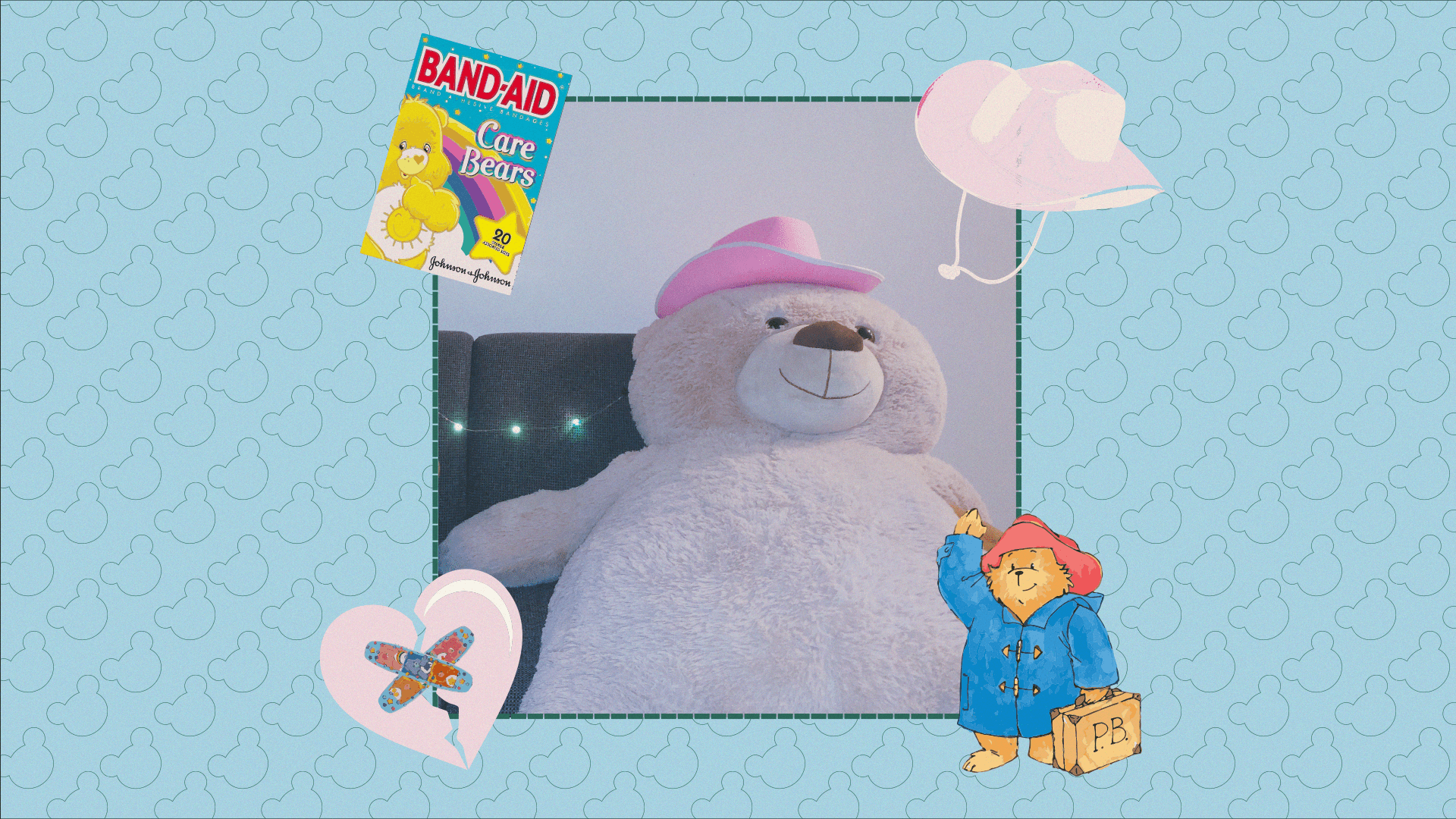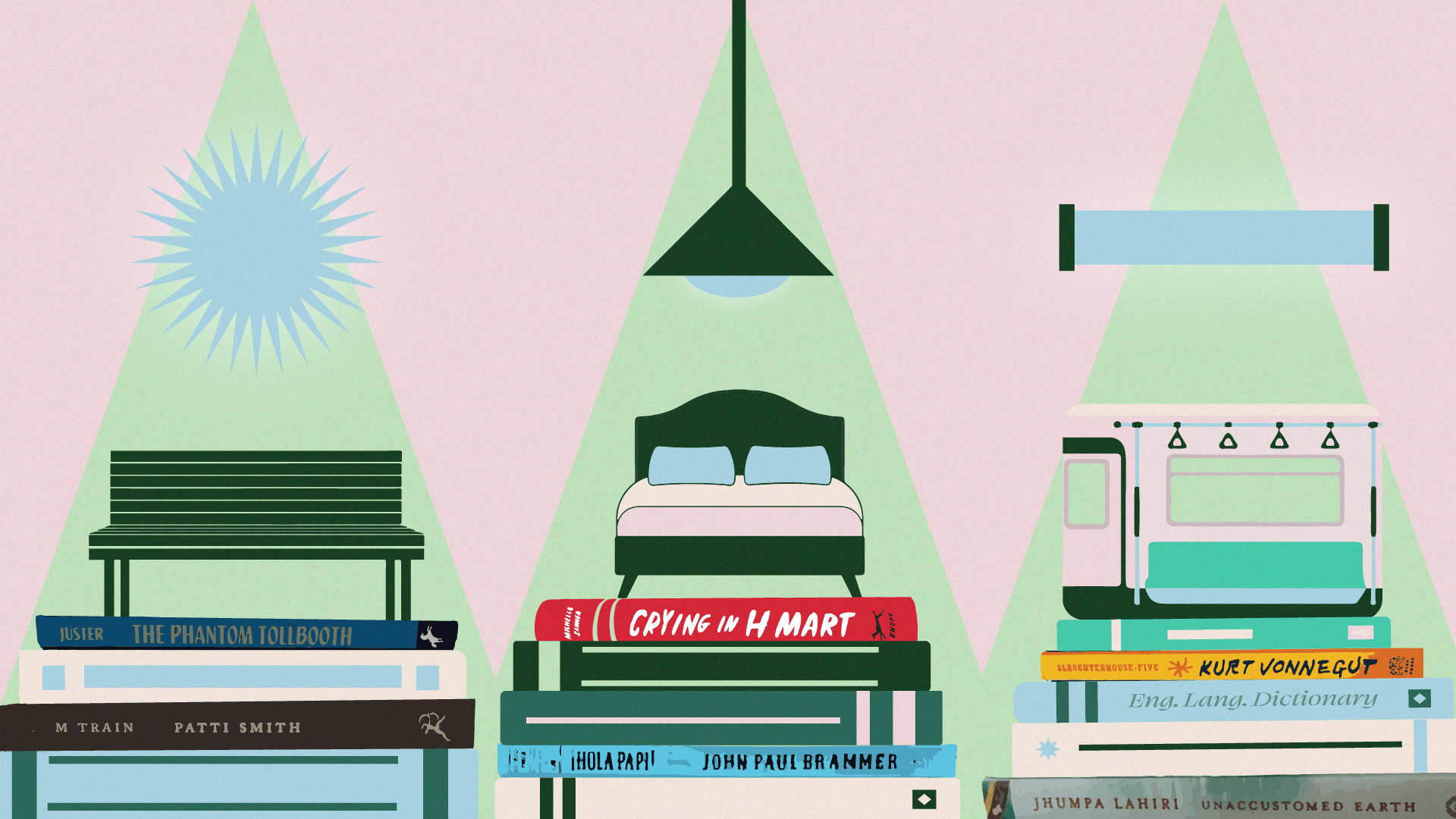
My Plants Keep Me Rooted
Sometimes a family is one gardener and 20 houseplants.
I’ve acquired more than 20 houseplants since May of last year, and every week I seem to come home with at least one or two more. Without fail on the weekends, I will wander into a plant store and pick out a new friend to add to my already-cluttered plant shelves, and I’m not entirely sure why I can’t stop. I’ve recently gotten snake plant cuttings, a Tradescantia nanouk, a Monstera adansonii, a peperomia raindrop, and a mini rose bush — all in the last two weeks.
It’s a dose of serotonin every time I get a new one. I give my plants names (my newest plant is a Monstera adansonii named Xochitl), think about what pot they’ll live in, and choose a place where they’ll get enough light for optimal growth. The abundance of flora in my home keeps me going, and I am intensely attached to every single one of them. I’m overjoyed when a new leaf pops from a vine and begins to unfurl, and I’ve cried multiple times upon accidentally ripping baby leaves off. Being a plant parent is, undoubtedly, an emotional undertaking. But beyond making me concerned when they lose leaves, my plants have also helped me keep my mental health in check, bond with my grandmother, and connect to my queer identity — even though all these things seem wholly unrelated.
Obviously indoor plants have tons of benefits. They clean air, give rooms a cheery, tropical mood that can distract from rainy days, raging snowstorms, and a depressing news cycle — and they give their owners a sense of responsibility. Though buying plants is undeniably a form of retail therapy, collecting them is more than just the initial hit of happiness that comes upon purchase. I’ve seen tons of TikToks that jokingly suggest people with mental health problems and plant addictions should spend less money on plants and more money on therapy, but in reality, the plants are a form of therapy. Studies have shown that repotting and caring for plants can boost moods, and horticultural therapy is a real thing that helps reduce anxiety. In an article for Refinery29, registered horticultural therapist Patty Cassidy explained that plants are good for mental health, in that they encourage patience, bring a connection to nature indoors, and offer the caretaker tangible evidence of their work (so it’s normal to feel really good if you see one of your plants putting out new growth).
My houseplants have gotten me through anxiety attacks and bouts of depression where just getting dressed is a major chore. Even if I’m struggling mentally, I know that a few days a week, I have to check everyone’s soil to see if they need water. I know I’ll probably need to prune, fertilize, and spray for pests during my plant time (which usually takes anywhere from one to two hours), and this is enough to get me out of bed on days when I’d rather nap all day, wallowing in my mental misery. The plants can’t live without me, and that gives me a sense of purpose in a time when it feels as though few things are under my control. My beloved Hawaiian pothos, Fiona, would whither if I didn’t water her weekly, and her long, sprawling vines would be half their length if I hadn’t carefully trained them to climb across my bedroom wall. I know that my massive Monstera deliciosa, Valentina, whose basketball-sized leaves provide a natural shade canopy in my room, would be a fraction of her size if I didn’t turn the humidifier on every day and check her soil for pesky bugs. I can see that the care I give helps my plants, and it’s fulfilling to have a positive impact on a living thing, even if it’s just a little houseplant.

Photograph by author.
Living through what seems like a never-ending pandemic has also intensified my need to feel connected to nature. My hobbies in normal times included traveling, hiking, backpacking, camping, and kayaking, but since the start of the pandemic, I’ve been confined to a small Brooklyn apartment with less opportunity to be in nature than I’ve had basically my whole life. My solution has clearly been to make my home feel like I’m outdoors, and I’m not the only one undertaking this form of redecoration — numerous cities, from LA to Philadelphia, have recorded soaring houseplant sales beginning around May of 2020, and as of 2021, they’re only increasing.
While every new leaf that grows makes me feel more proud of the gardening skills I’ve acquired over the last year, I haven’t quite been able to decide why I’ve assumed my final form as a houseplant hoarder. My TikTok For You page has told me it’s either because I’m depressed and anxious, or because I’m a raging bisexual. (My two favorite TikTok trends are “Don’t be sad, go get a new plant” and the sound that asks “Do all bisexuals have this power?” and promptly shows some obviously queer woman or femme with an extremely large collection of houseplants.) But I think my greenery habit also has something to do with my connection to my grandmother, an avid home gardener who might be mistaken for a well-trained horticulturist.
Houseplants have given my grandmother and I yet another thing to bond over. I show her my climbing vines over FaceTime, and she tells me about the crown of thorns plant she’s been cultivating, or the peace lilies she’s had for over 20 years. We talk about the plants she’ll propagate for me to bring back to New York once I’m able to visit her again, and I tell her what plants might do well in her collection. I even sent her a heartleaf philodendron for Christmas, hoping that she’ll think of me every time she cares for it.
My grandmother lives on a small plot of land in the San Fernando Valley of Los Angeles, and she makes use of every inch of her space, taking advantage of the balmy Southern California weather. Mostly kept outdoors, her plant collection includes both indoor and outdoor plants, from fruit trees, begonias, and a massive bougainvillea that shrouds the length of the brick wall on her property, to hundreds of pots all situated on outdoor dining tables. Her backyard is essentially a micro urban botanical garden.
A number of these plants were grown from clippings she took (illegally?) from other places. I’m almost positive that the luxuriant hydrangea bushes in her front yard were grown from a single cutting taken from a famous park in San Diego that I won’t name, and I’ve seen her yank leaves off plants at restaurants, parks, and even from stores. Any time she saw a plant she liked out in public, she would coyly take a cutting, stuff it in her purse (all while looking extra suspicious), and propagate, plant, and tend to until it thrived. My family was usually embarrassed when she’d go off to pluck a branch from a plant in public, but she was always defiant — even cheeky — and pleased with her new plant acquisition. Maybe she has the right idea; plants should be accessible to everyone, and everyone can benefit from keeping a plant in their home.
Though I haven’t shared my experience with mental health problems or my queer identity with my grandmother, my newfound houseplant hobby seems to wrap up all these facets of my identity into something that symbolizes positivity, growth, and beauty. I can chat and connect with my grandmother about something we both identify with and enjoy, and I’m also doing something good for my mental wellbeing in taking care of my little green roommates. Every time I clip a dead leaf, or need to save a rotting stem, I’m reminded that there’s beauty in the struggle, and even stunning, healthy leaves can emerge from a previously sad, withering plant.


